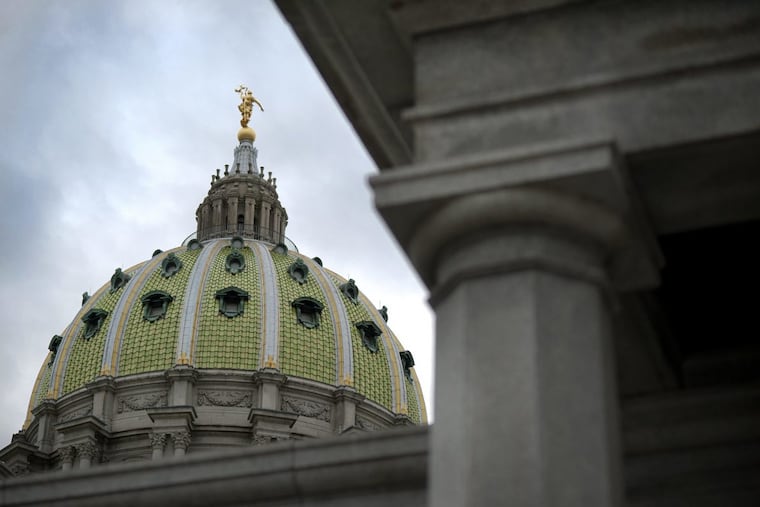Pa. could eliminate property taxes this year, senators say
Now that they have a new constitutional amendment to help them, senators say they are trying to find a successful way to eliminate levies on real estate to finance schools.

After years of property owners' complaints, this might be the year that Pennsylvania dramatically changes its real-estate tax system — if a few state senators have their way.
A decade-long effort to eliminate or reduce property taxes has gained new momentum, after a constitutional amendment passed in November that allows the state to exempt owner-occupied homes from real estate levies.
Now, the legislature could use that exemption to eliminate school property taxes.
A group of senators is working to find a bill that has a chance at succeeding, said Sen. David Argall (R., Schuylkill).
"We're taking a headcount to see which version the members prefer," Argall said. "And then once we have a solid count then we hope to move forward on the issue."
Despite the success of the amendment, their efforts are sure to confront opposition.
School districts and the State Association of School Business Officials have raised concerns about the proposals, and a majority of voters in the southeast region of the state rejected the constitutional amendment. Gov. Wolf, who supports property tax relief, has also been against the details in previous plans.
Argall said he's polling senators on four options: One would exempt homeowners from paying taxes on their primary residences and would raise the state income tax to fund school districts; two also would exempt only primary residences, but would make up the difference through combinations of sales and income tax increases; and the Property Tax Independence Act, which would eliminate school taxes on all properties by raising sales and income taxes.
If they eliminate school taxes only for owner-occupied homes, legislators would still have to come up with more than $7 billion in replacement revenue, according to a report released Thursday by the state's Independent Fiscal Office.
Senators plan to sort out the details this week when they sit down with the results of their informal polling, Argall said.
They have not yet taken ideas to Wolf. His spokesman, J.J. Abbott, said Friday that the governor would review any proposal when formally introduced, and noted that Wolf has long supported property tax relief and has also made school funding "his top priority."
Sen. Mario Scavello (R., Monroe), who proposed the plan that would raise only the income tax, said he crunched the numbers and decided that an increase of 1.6 percentage points should work. His proposal would raise the overall state income-tax rate to about 4.67 percent from its current 3.07 percent.
The income tax increase would go into a separate state fund so that it could be turned over to school districts. School boards would continue setting their own budgets under the proposal, Scavello said.
"I'm looking at trying to solve this once and for all," he said. "The tax man shouldn't take your house."
The Property Tax Independence Act, which Argall sponsored, would have eliminated school taxes for all properties. It had support from Democrats and Republicans, but was defeated when Lt. Gov. Mike Stack broke a tie vote in 2015.
Argall said he still prefers that bill, but is open to pursuing a different path under the new constitutional amendment because it opened the door to more flexibility. But he is against one part of the amendment — a provision that would allow individual taxing authorities to choose whether to exempt homeowners from their taxes.
"Our goal is to have it … all directed by the state government so that every district would have elimination," Argall said. "We don't want it to go district by district. That would be a disaster."